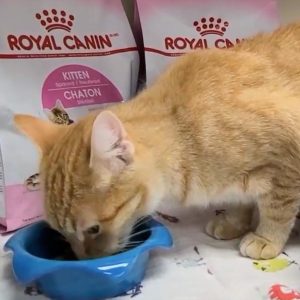 Just like humans, pets require a balanced and nutritious diet to thrive. Providing pets with the right nutrition from the beginning can lay the foundation for a long and healthy life. Emily Belsito, registered veterinarian technician from Oakville & Milton Humane Society, answers some common questions about feeding our pets a healthy and balanced diet.
Just like humans, pets require a balanced and nutritious diet to thrive. Providing pets with the right nutrition from the beginning can lay the foundation for a long and healthy life. Emily Belsito, registered veterinarian technician from Oakville & Milton Humane Society, answers some common questions about feeding our pets a healthy and balanced diet.
Q: What should I consider when choosing a diet for my new cat or dog?
A: It is crucial to select a diet that suits your pet's size, age, breed, and reproductive status. Proper nutrition provides pets with the essential nutrients, vitamins, and minerals they need to support their physical and mental health. It keeps their immune system strong, maintains a healthy weight, promotes a shiny coat, and supports their overall vitality.
A well-balanced diet can help prevent common health issues such as obesity, diabetes, allergies, and dental problems. It can also aid in managing certain medical conditions, such as kidney disease or gastrointestinal disorders.
At OMHS, we rely on Royal Canin for maintenance diets, which are specially formulated to meet the specific nutritional needs of different animals.
Q: Should I follow any specific guidelines when feeding my pet?
A: Yes, it is important to follow the feeding guidelines provided on the packaging of your chosen pet food. These guidelines are designed to ensure your pet receives the appropriate amount of nutrition for their size and activity level.
Q: What should I do if my pet requires a special diet?
A: In some cases, pets may require a veterinary prescription diet. When adopting from OMHS, staff will inform you of any special dietary requirements your new companion may have. It is essential to be aware of these needs to promote their well-being.
Q: How should I transition my pet's food to a new diet?
A: To prevent digestive issues and discomfort, it is best to transition your pet's food gradually over several days. Start by mixing a small portion of the new food with their current food, gradually increasing the proportion of the new food over time.
Q: What should I do if my pet experiences digestive issues during the transition?
A: If you notice vomiting or changes in stool quality during the food transition, it is advisable to consult your veterinarian for guidance and support. They can assess your pet's condition and recommend appropriate adjustments, if necessary.
Q: What other benefits can I expect when adopting from OMHS?
A: When you adopt from OMHS, you receive a pet that is healthy, fully vaccinated and spayed or neutered. Cats that are adopted will receive a sample bag of Royal Canin food, and a case of Royal Canin food will be delivered to your door. Similarly, when you adopt a dog on a regular diet, a bag of food will be provided. These generous offerings ensure a seamless transition and provide the healthiest start to your new companion's life.
___________________________________________________________
OMHS is pleased to partner with Royal Canin as an in-shelter retailer and corporate partner, with a portion of revenues going back into the shelter.
If you have further questions or are considering adopting a cat or dog, please visit our adoptions page.
